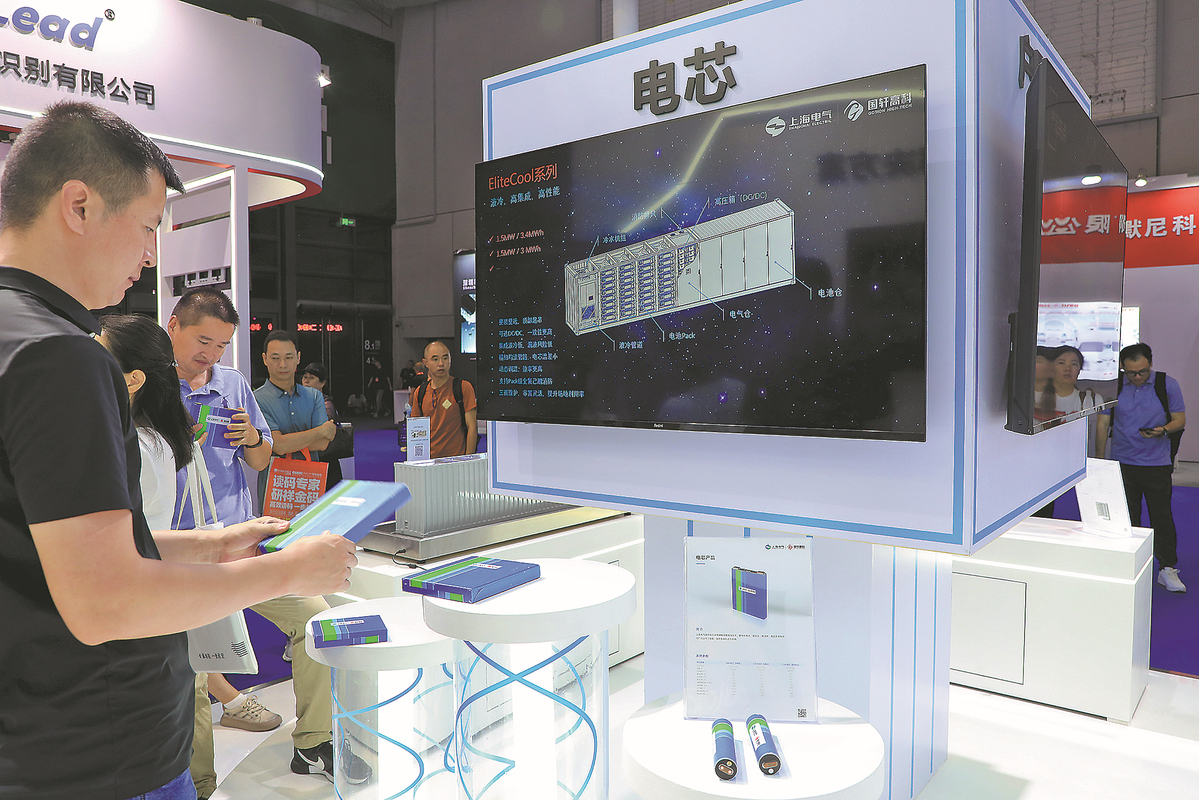China's battery makers build plants abroad to benefit local industry
By CAO YINGYING | China Daily | Updated: 2023-09-18 10:16

In response to growing demand and stricter policy restrictions, Chinese battery makers are ramping up efforts to construct overseas factories.
As reported by Indonesia's industry ministry on Wednesday, the latest move is an agreement between Chinese battery maker Gotion and Indonesia's Anugrah Neo Energy Materials to build a high-pressure acid leaching plant, which will produce materials used in batteries for electric vehicles.
Just five days earlier, Anhui-based Gotion unveiled plans to set up a $2 billion EV lithium battery manufacturing plant in Illinois, the United States. Located in the city of Manteno, the facility is expected to produce 10 gigawatt-hours of lithium-ion battery packs and 40 GWh of lithium-ion battery cells a year when it begins production next year.
According to industry insiders, the Illinois plant will assist EV makers by accelerating adoption of lithium iron phosphate batteries in the US, where nickel-cobalt-manganese ternary lithium batteries from Japanese and South Korean companies are currently the go-to choice.
Orient Securities said the NEV market is still growing rapidly, with China maintaining a substantial portion. The country's NEV sales account for 30 percent of total vehicle sales currently. Meanwhile, Europe and the US have significant room for growth and are catching up quickly with policy support.
Gotion will be eligible to receive tax benefits totaling $213 million over 30 years and also get $125 million in capital funding from the Illinois Reimagining Energy and Vehicles incentive package, according to Governor J.B. Pritzker.
While the policy brings stricter requirements, Chen Ruilin, vice-president of Gotion's international business, said in April the company had to consider establishing a local factory due to the US Inflation Reduction Act.
The act imposes strict standards on the sourcing of critical minerals and components for EV batteries and specifies that EVs must have 40 percent of their critical battery minerals sourced or recycled in North America or countries with trade agreements with the US.
Meanwhile, Eve Energy, another Chinese battery maker, signed a deal in early September to invest $150 million in a joint venture with Daimler Truck, Electrified Power and Paccar in a 21 GWh US battery plant.
The $2.64 billion facility will utilize Eve Energy technologies to develop and manufacture lithium-iron-phosphate batteries for commercial vehicles.
In another move, a subsidiary of China's Sunwoda Electronic Co invested 1.9 billion yuan ($261.65 million) in Hungary for the construction of the first phase of a factory that will manufacture and sell lithium-ion batteries and battery systems.
Sunwoda Chairman Wang Wei said expanding into international markets via localized production brings companies closer to customers, and with the increasing adoption of EVs in Europe and bans on internal combustion engines, there are significant growth opportunities for domestic companies in the NEV chain.
Wang also noted that Chinese battery companies face challenges from European and American policies like the Inflation Reduction Act and EU Batteries Regulation when venturing into overseas markets.
CATL, China's largest battery maker, has two overseas factories: one operating in Germany and the other under construction in Hungary. It will be the largest battery factory in Europe when production begins in 2025.
According to data from the Ministry of Industry and Information Technology, in the first half of this year, China's lithium battery product exports increased by 69 percent year-on-year, with a predominant focus on power batteries.
During the same period, CATL's overseas revenue amounted to 65.68 billion yuan, growing more than 1.9 times and accounting for 35.49 percent of its total revenue. Gotion and CALB's overseas business revenue increased by 296.74 percent and 115.7 percent year-on-year, respectively.
























